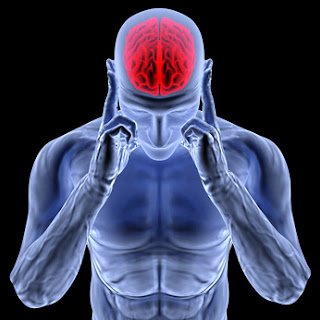ISLAM AND THE PHILOSOPHY OF SCIENCE
Philosophy
of science is the study, from a philosophical perspective, of the elements of
scientific inquiry and of their validity. The philosophy of science
attempts first to elucidate the elements involved in scientific
inquiry—observational procedures, patterns of argument, methods of
representation and calculation, metaphysical presuppositions—and then to
evaluate the grounds of their validity from the points of view of formal logic,
practical methodology, and metaphysics. The philosophy of science is thus a
topic for explicit analysis just as are other subdivisions of
philosophy. The first attempts to move beyond traditional mythologies
to a rational account of nature, begins with the Ionian and south Italian
philosophers around 600 BC. Questions about nature discussed in Plato's Timaeus and
Aristotle's Physics, for instance, were neither purely
metaphysical nor purely empirical in character though they had a methodological
aspect akin to that of modern philosophy of science. In the High Middle Ages,
all the central questions in the philosophy of science were restated as
theological questions about the relationship between God's omniscience and the
more limited knowledge of man.
Correspondingly,
the philosophy of science has been approached in very diverse spirits, ranging
from the highly abstract and mathematical to the concrete and historical and
from the severely positivistic to the frankly theological. Pierre Duhem, a
French theoretical physicist, have argued that the claims of science are
inherently limited and so leave room for other, more embracing varieties of
metaphysical and religious truth.
The
Islamic world during this last one hundred and fifty year period produced very
few historians of science and very few philosophers of science. It produced a
very large number of scientists and engineers, some of whom were very brilliant
and studying in the best institutions of the world, but it produced practically
no major philosopher and historian of science until just a few decades ago. All
the debate that was being carried out in the West itself about the impact of
science upon religion, upon the philosophy of science, [about] what this kind
of knowing meant, these were circumvented, more or less, in the Islamic
educational system. The only exceptions, perhaps, was when Kamal Ataturk came
into power in Turkey. Though in many ways a brutal soldier, he saved Turkey
from extinction. We know what he did to Islam in Turkey. But he had a certain
intuition, certain visions of things. The first thing that he did was to say
that in order for Turkey to stand on its feet as a modern ``secular’’ state,
what it has to do is [to] learn about the history of Western science. So when
the program for the doctorate degree in the history of science headed by the
late George Sarton, scholar and historian of science, was established at
Harvard University which was the first program in America, Ataturk sent the
first student to study the history of science there. The first person to enter
the PhD program in the history of science at Harvard University is a Turk,
Aideen Saeeli.
Anti-religion
philosopher of France in the nineteenth century, Ernst Renan, who was known
as the grandfather of rationalism in nineteenth century French
philosophy, wrote a book which is now a classical book on Averroes,
(Ibn-Rushd), [and] which has been reprinted now after 140 years in France, in
which he says Averroes represents rationalism which led to modern science. Ibn
Rushd tried marrying revelation with philosophy. He produced a series of
summaries and commentaries on most of Aristotle's works (1169–95) and on
Plato's Republic, which exerted considerable influence in both the Islamic
world and Europe for centuries. He wrote the Decisive Treatise on the
Agreement Between Religious Law and Philosophy (Fasl al-Makāl), Examination
of the Methods of Proof Concerning the Doctrines of Religion (Kashf
al-Manāhij), and The Incoherence of the Incoherence (Tahāfut
al-Tahāfut), all in defense of the philosophical study of religion against the
theologians like Al-Ghazzali.
Later
religious scholars of Islam whose names paradoxically enough, meant scientists,
in fact, disdained science completely. And so you have this dichotomy within
the Islamic world, in which the modernists refuse to study the philosophical
and religious implications of the introduction of Western science in the
Islamic world, and the classical traditional ulema, all refused to have
anything to do with modern science. This left a major vacuum in the
intellectual life of the Islamic community for which every single Muslim
suffers in one way or another.
Jamaluddin
Afghani, Muslim politician, political agitator, and journalist whose belief in
the potency of a revived Islamic civilization in the face of European
domination significantly influenced the development of Muslim thought in the
19th and early 20th centuries. He came up with view that
science per se is what has made the West powerful and great. And the West is
dominating over the Islamic world because it has this power in its pocket. And
since this is being allowed, this is being done, there must be something very
positive about this science, that science itself is good, because it gives
power. This was the first part of his argument. Secondly, [he argued], science
came from the Islamic world originally and therefore Islamic science is really
responsible for the West’s possession of science and the West’s domination of
the Islamic world itself. And therefore, all the Muslims have to do is to
reclaim this science for themselves in order to reach the glories of their past
and become a powerful and great civilization. This is the gist of a rather
extensive argument given by Jamaluddin Afghani which equates, in fact, Islamic
science with Western science. Secondly, it equates the power of the West with
the power of science. To some extent this is true, but not completely so. And
thirdly, it believes that acquisition of this science of the West [by the
Muslims] is, no more no less, than the Muslims claiming their own property
which has somehow been taken over by another continent and [the Muslims] just
want back what is really their own. Why are we (Muslim) left behind?
Many
people think this was all the fault of the ulema. I do not think this was all
the fault of the ulema, this is also the fault of the authorities which had
economic and political power in their hands, and the two in fact went together.
We must add to this a third element [which] is that while science was spreading
in the Islamic world, there had been created within the Islamic world, a
reformist puritanical movement, especially within Arabia, associated with the
name of Mohammed Ibn Abdul Wahab, the so-called Wahabi movement, which is still
very strong in Saudi Arabia, which in fact gave rise to [the country] with the
wedding of Najd and Hejaz in 1926-27. Its roots [lie] in the eighteenth century
when this man lived, and his way of thinking then proliferated into Egypt and
Syria. Similarly the Salafia movement in India and other places, [also] wanted
to interpret Islam in a very rational and simple manner and was opposed to
``philosophical’’ speculation and was opposed to the whole tradition of Islamic
philosophy. [These movements] all but went along with the more quarrelsome and
troublesome dimensions of the impact of science upon the faith system and the
philosophical world-view of Islam. It is interesting that the Wahabi ulema in
the nineteenth century opposed completely any interest in modern science and
technology. It is today that Saudi Arabia of course has one of the best
programs for the teaching of science and technology in the Islamic world. The
centers at Dhahran and other places are really quite amazing but it is a very
modern transformation.
It
is fruitful and possible for one civilization to learn the science of another
civilization but to do that it must be able to abstract and make its own. There
was a period of transmission but there was also a period of digestion,
ingestion, and integration which always means also rejection. No science
has ever been integrated into any civilization without some of it also being
rejected. And the best example of that is exactly what Islam did with Greek
science and what Europe did with Islamic science, which is usually called
Arabic science but is really Islamic science. The Muslims did not just take
over Greek science and translate it into Arabic and preserve its Greek
character. It was totally transformed into the part and parcel of the Islamic
intellectual citadel. Anyone who have actually ever studied in depth the text
of the great Muslim scientists like Al-biruni or Ibn Sina or any Andulusian
scientists know that you are living within the Islamic Universe. You’re not living
within the Greek Universe. It is true that the particular descriptions might
have been taken from the [works] of Aristotle or a particular formula from
Euclid’s Elements, but the whole science is totally integrated into the Islamic
point of view. The greatest work of Algebra in the pre-modern period is by the
Persian poet Omar Khayyam. When we read his book, of course, if when you get
[to a] particular formula or equation you could be writing in Chinese or
English and could be in any civilization, but the impact that the whole work
makes upon you makes you feel that you belong to a total intellectual universe-
the Islamic Universe. And this is precisely what the West did to Islamic
science. When in Toledo in the 1030’s and the 1040’s the translations of the
books from the Arabic into Latin began which really began the scientific
changes of the 12th century and again in the 15th, 16th and 17th centuries of
the West, books were simply being translated from Arabic into Latin.
Abdus
Salam, the only Muslim to have won the Noble Prize in physics, who was asked
`what happened to Islamic Science?’ He said `Nothing. Instead what we
cultivated in Isfahan and Cordoba is now being cultivated in MIT, Caltech and
at Imperial College, London. It’s just a geographical translation of place’.




Comments
Post a Comment